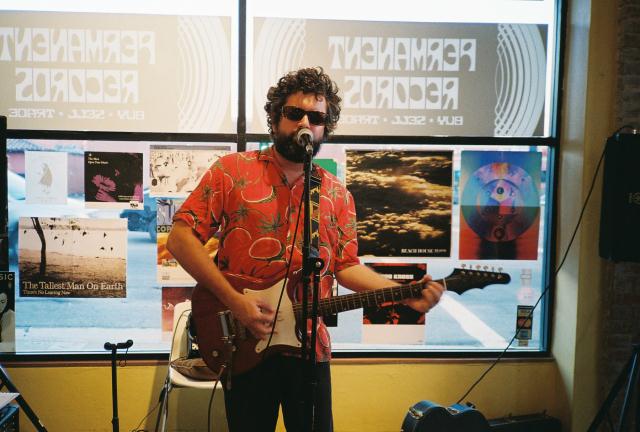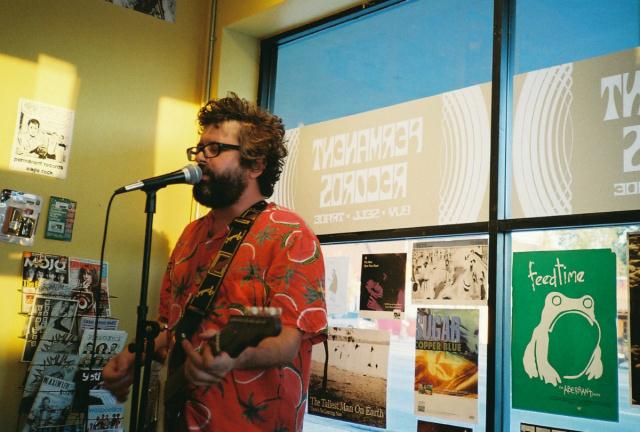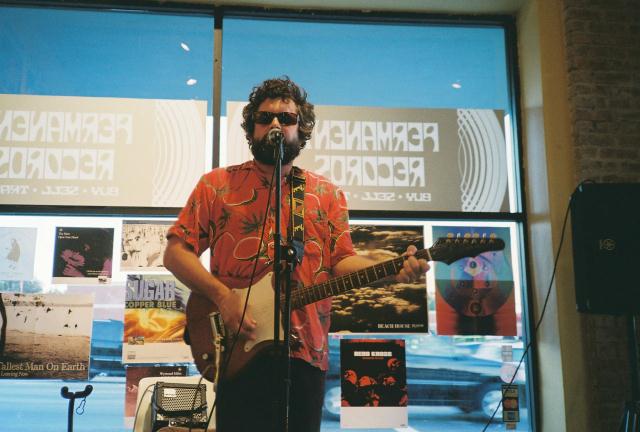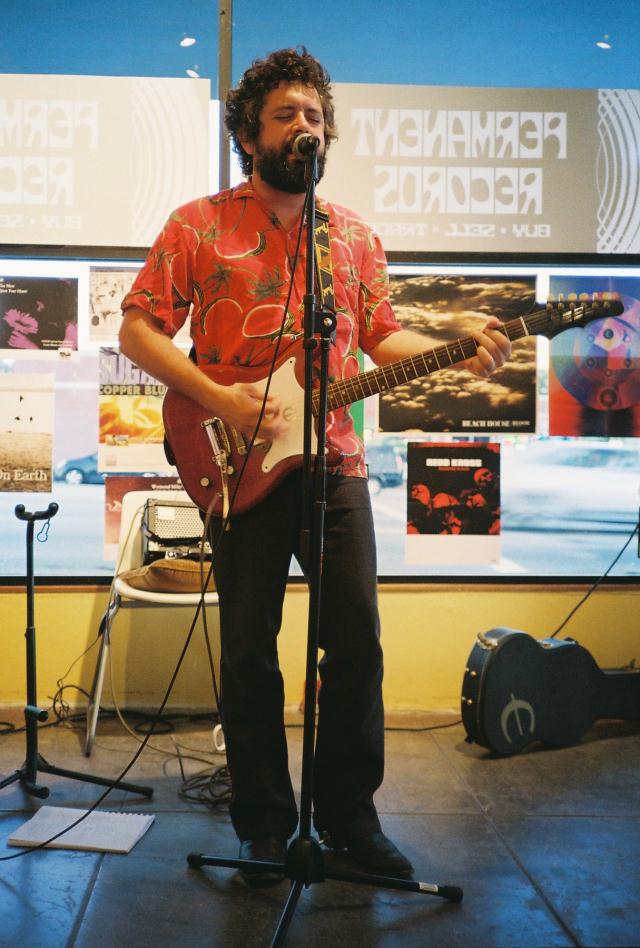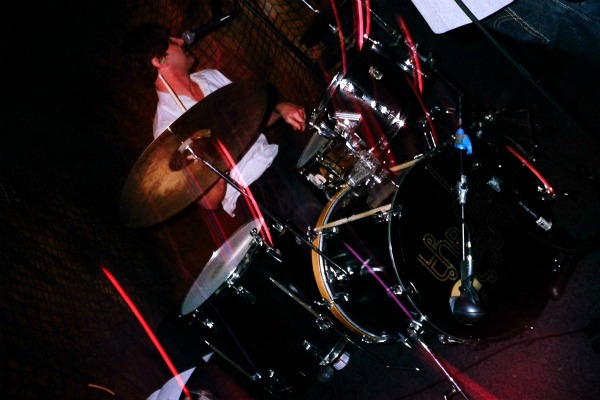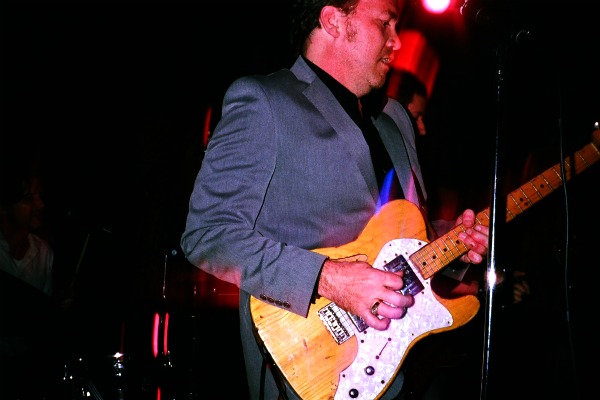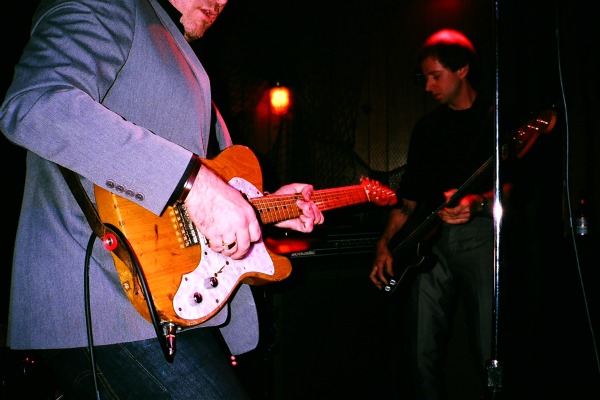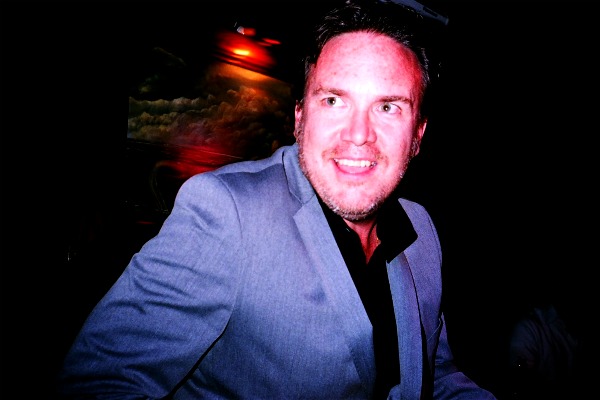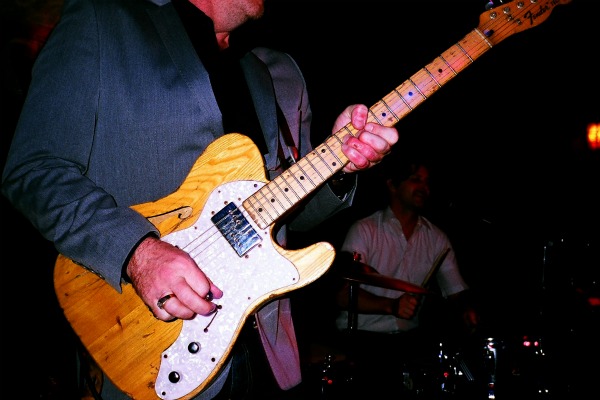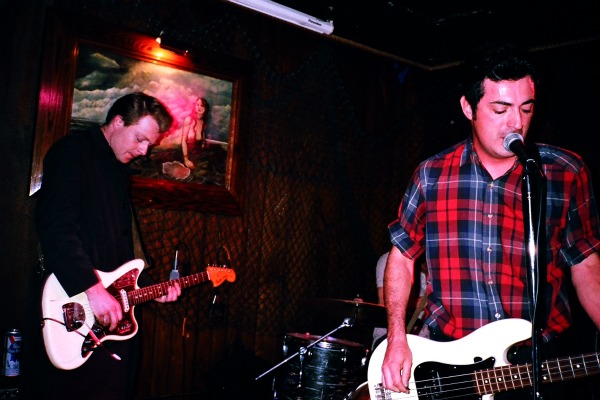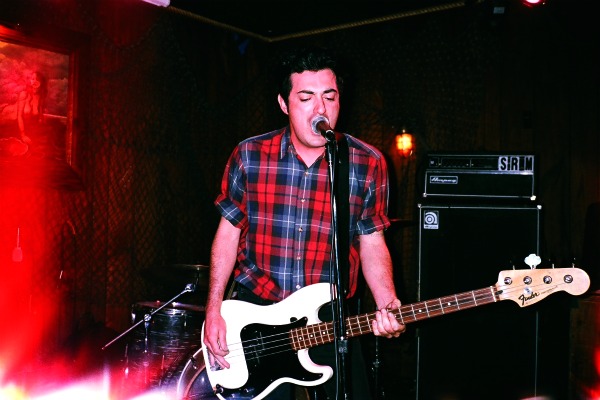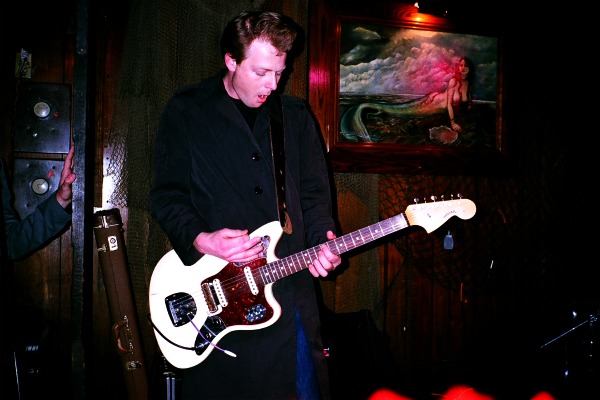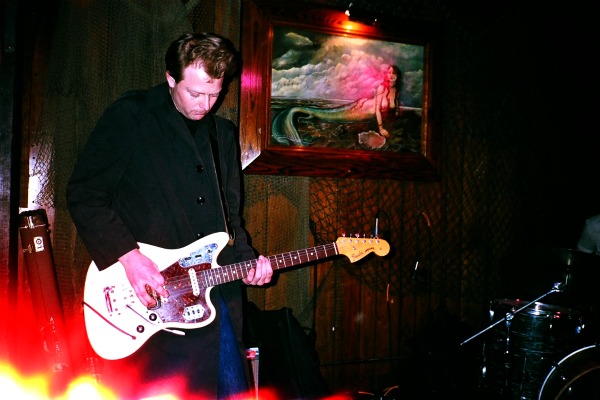The following is an interview conducted in 2005 for the now-defunct In a Better World website.
The Paine brothers. Ring a bell? If not, Bobby and Larson Paine were responsible for many of the events that shaped Los Angeles’ musical history. They producd The Go-Go’s, Fear, Geza X (whom they also employed) and Josie Cotton. “Johnny Are You Queer” is now a phrase known to most aficionados of music made in the 1980s. It was a song written by the Paine brothers that jump-started Josie Cotton’s career. Since then Josie has released numerous albums and written an enormous amount of songs. Josie and long-time friend Geza X are the owners of a fabulous recording studio called Satellite Park in Malibu, California. Josie has never stopped recording and is currently working on a new record.
Interview by Mor Fleisher-Leach
Mor: How did you get in contact with Bomp! Records to release your first single, “Johnny Are You Queer”?
Actually, the very first label that it came out on was MSR Records. MSR was this small label that went out of business. Basically, we just called up Bomp! Records and said we had this single, “Johnny Are You Queer”, and Greg Shaw (owner of Bomp! Records) said, “I’ll take it!” So it was really quick. He had wanted to do a whole album but the Paine brothers, who were my producers, figured that there was going to be another chance to do something with a bigger label. In retrospect, I wish I had stayed with Bomp! Records because they were so awesome. Greg Shaw was such a great guy and I think the record would have been a lot better had I stayed there.
You went to Elektra for the whole record.
Yeah.
How was it like working with them?
It was bizarre because I thought the record business worked like Jiffy Lube. You have a mechanical problem or need to get things fixed and they'd be handled by competent people. But it doesn’t work like that. There are a lot of politics in the record business and a high degree of incompetence that I never imagined would take place at that level. You think that they would handle things that needed to be handled and that’s not always the case.
Who did the cover art for the "Johnny Are You Queer" 12” single?
That was a gal at Bomp! I don’t remember her name but she was great. The first drawings she came up with were hysterical. They were actually of (Johnny) coming out of a bath house. It was obviously a gay bath house and he had various handkerchiefs in his back pocket symbolizing whatever sexual activity he’d be interested in doing. At that time there was a yellow handkerchief that meant one thing while a black one meant something different; placement in the right pocket or left pocket symbolized something else. So it was highly, highly sexual in nature. My producers once again rode in on their white horses and said, “Clean it up!” They wanted Johnny to be just a regular guy, I guess.
What’s the story behind that song?
That’s an interesting story. A lot of people don’t know the real history of that song. Actually, it started off as a fragment of a song. It certainly wasn’t a complete song -- it was like a chorus that Fear wrote. Fear wrote the actual title and part of the song. It was a very fast-speed punk song and it was just that phrase “Johnny are you queer! Johnny are you queer!” over and over. The Paine brother at the time were working with The Go-Go’s. They actually discovered The Go-Go’s! That’s an unknown fact because The Go-Go’s were so afraid of being sued by them that they never gave them the credit. (The Paine brothers) had been pretty much doing everything for them. So they were working at the time with (The Go-Go’s) and had made the song into more of what it is today. They let The Go-Go’s perform it for a while and it actually became a very famous song for them. But when the Paine brothers and The Go-Go’s split up, the Paine brothers took their song back. When Fear actually realized that the song had been rewritten in a certain way and that the publishing was all on the table about who owned the song there was some debate. It was all decided with a coin toss; if the Paine brothers won it they got all the publishing and not Lee Ving, but the other main guy in Fear lost the coin toss. That’s how the Paine brothers got that song.
Is that when they gave it to you?
No; at the time they just took it back and they were actually making a demo of the song for Warner Brothers because they had a publishing deal. I had heard that song and I was very interested in doing the demo of it just for their publishing company because I loved it and thought it was fantastic. It didn’t go over well; they wouldn’t let me do it. My situation was that I really had to work it really hard to be able to even do the demo of that song. They ended up playing it for some people and realized that it was actually a record! That was how that happened and we called up Greg (Shaw) at that point.
How did you meet Bobby and Larson?
I met Larson Paine in a bank line. (laughs) It’s really one of those trashy Hollywood stories. It was on the corner of Sunset and Vine even! I was just standing in the line and I think he carved my phone number into his car with a nail which really impressed me. So that’s how I met them and like I said they were working with all these really great groups and various punk bands.
Did you meet Geza X through them?
I did. We had gotten a hold of an old Stephens two-inch tape machine which is really rare. An incredibly huge sound comes from this machine and we actually had a prototype done by Stephens himself. He had come out and could not fix this machine -- and he invented it! So the Paine brothers were sitting around saying, “Well there’s this guy, this Geza X, who talks to the machines. He’s like an elf and he’ll come in and talk to the machines and they’ll work. He’s some kind of an electronic genius.” I thought, "Oh, interesting." I didn’t know who he was and he came in and did exactly that. The tape machine was so messed up that you could watch the actual film of the tape unravel into a pile. It was just circling down; every time you’d do another take you’d make it better but you’d destroy it at the exact same moment. It was just this insane experience we were going through trying to make this record with this tape machine. Geza came in and took everything apart on the floor. Every tube, every wire and I remember him standing in the middle of the room with his hands on the tubes going, “Come on! Come on! You gotta work now!” He was like Peter Pan with this thing. He put it all back together and it worked! He didn’t even do anything to it; he just talked to the machine. Then we did pretty much made the whole "Johnny Are You Queer” 12" on there after that. Geza was in my life and at that point he asked me to sing on his record You Goddam Kids. I was so honored and in awe of his talent that I could barely speak in his presence. He’s Geza X!
Exactly! What did you sing on that record?
I sang on probably half of the record. I did “Isotope Soap” and “We Need More Power” and a bunch of different ones.
That’s a really good record. I love that record.
It’s a classic record and not a lot of people know about it. He was going to have that released and believe it or not one of these indie labels said that the title was too controversial -- You Goddam Kids. Please.
Didn’t he spell Goddamn wrong?
He probably did!
I ask because I have the record. It was released on Dionysis Records (2002) and I believe they spelled Goddamn wrong, without the “n”.
Maybe they changed it. I don’t know if he even knows that it’s been re-released. I should tell him.
What got you interested in singing in the first place?
I did it in school and was always doing it. My father was a ballet dancer and I grew up around a lot of artistic things going on in my house. I guess being artistic was just something around me so I started singing. Although I like doing it I never really wanted to be a singer; I’ve always wanted to be a songwriter. The songwriting aspect was my love. I knew I could do the singing in some capacity, but it turns out I sing mainly my own stuff.
Have you ever written anything for anybody else?
Actually, one of the songs on my new record I wrote for Shannon Knife. There was a remote possibility they were going to be coming in to Geza’s and my orbit through some people we knew and possibly recording in the studio. So I just sat down in one of those rare moments where a song will just channel through you. It came out and I had the song and just as quickly as it happened, the situation fell apart. They weren’t going to be coming to the studio. I never actually sent it to them but I ended up recording it. It’s the “Kung-Fu Girl.”
When’s the new album going to come out?
Well, it’s finished. I’m just doing finishing art work. What I really messed up on before was timing. With the Frightened by Nightingales record I did, I never got any press or any reviews because it started being sold too soon. I’m trying to be really careful because that record never got one review. Just knowing the order of things is so important so I’m trying to not make any mistakes. People want to buy it right now but if I do that before the press gets it, it’s just not a good way of going about it. But I’m trying to get it out this year because it’s all done.
How did you and Geza X end up opening the studio in Malibu?
We started off in West Hollywood, the Hollywood Hills. We had a studio there called City Lab. Actually, (Geza) did that song “Bitch” there by Meredith Brooks. Then, when we came out here, we changed the name to Satellite Park but it’s a continuation of the other studio.
How did you get involved with the LA punk scene back in the ‘80s?
I was pretty much an outsider. My big connection to that world was the Paine brothers. I came in as it was happening. I kind of fell off the truck from Texas thinking, “Where do the songwriters go?” I just didn’t know anything; I didn’t know what a producer was. So I was just like, “Hi, y’all!” There was no punk scene or anything in Texas so it was all wild to me. I never actually made it to The Masque; I was not in that scene. I was around a little bit but I don’t have any grand memories of the founding fathers of punk rock like Paul (Roessler) and Hellin (Killer) and Geza and all them do.
What influenced your move from Texas to California?
I wanted to be a singer-songwriter and I came here with my girlfriend because she wanted to be an actress. We drove out and kind of went our separate ways but that was my whole thing, I came here to do music. In terms of Texas, Texas is like England in this weird way of being so conservative that it makes terrifically eccentric people. There’s nothing more eccentric than a Texan who’s going over the edge. That kept me there for a long time because there was a lot of great art, a lot of political savvy and guerrilla tactics in art. But you really, at that point, had to come out here to do anything with music.
The inevitable question about Valley Girl; how did you get involved with that movie?
That was just a call. My manager knew somebody with some connections who sought me out and basically had me in line for the movie. For some reason Valley Girl lives on and I don’t really know why. (laughs) But it was a fun experience.
You worked on a movie with Adam Ant named Nomads. How did that happen?
They were actually looking for anybody to fill-in this role. My friend was actually working on the movie and I think someone had backed out, Madonna or some other new-wavy person. They had wanted someone else but I was around. John McTiernan actually directed Nomads. He's now this huge director. It was fun; I remember Adam’s big line in the movie backstage was, “Who do I have to fuck to get out of this movie!” That was pasted up on the mirror so that was pretty funny.
From your first two records to your third one, Frightened by Nightingales, there was a break of a few years where you didn’t do anything. Why did you release your third record so far, time wise, after your second one?
Well I actually kept recording. I kept writing songs and making records. I had such a nauseating reaction to the music business during that time period. I had people calling me trying to get me deals, I had meetings set up that I wouldn’t show up to; I couldn’t make myself enter a meeting or deal in that world. I love writing songs and I love making records and if pushed hard enough, once on stage, I like that too, but the music business for me was like a trip into dark water. My psyche would not allow me to do it. I've made a bunch of music and I’m going to be releasing some of the back catalog soon. I hear the phrase, “I’m a survivor.” I wasn’t a survivor. I didn’t survive that world. It’s harsh and I didn’t want to be in it. I would just physically be ill.
Who got you to actually release Frightened by Nightingales?
Well, because it was more about someone else than me I was able to focus myself because I wanted so much for Bill Rhea to become a known person. He was such an incredible talent and he was the main writer on that record as well as producer. That was one project where I really did come along as a singer. I found it so challenging and incredible. I had training and this and that; it was the first time I’d actually been able to use the operatic part of my voice in this crazy Tim Burton-esque production. But what’s funny about that record is it was actually put out in France first. That was the other thing—I had a certain amount of obscurity with that record. It really wasn’t me and it really wasn’t here. It was enough removed where I could pretend it wasn’t really happening to me but to someone else. What was funny about that was for one thing they misspelled my name! They spelled it “Josey”. The press was the other end of this equation of the music business. I was terrified of the press, to be totally honest, and they were pretty hard on me during my exposure in the ‘80s. But when this came out it was this really wacky cabaret. It’s twistedly dark and not really normal cabaret; it’s all these things that I love. But when it came out in France the first reviews I got were that it was too cabaret! I thought that was so funny -- to be too cabaret for France but the person who put it out explained to me that the music was in some way similar to the music of the terrorists in the Nazi occupation and it was reminding people of a bad time. So I thought, "Great, I’m too cabaret for France." Then there was a whole series of these catch phrases that it just became funny to me. I was banned in Amsterdam. So I was too controversial for Amsterdam and too cabaret for France. Then when I did this other record that was of all B-Movie soundtracks and I took it to Rhino and they said it was too quirky, so I thought, “I’m screwed!” But I just kept making records. I have a whole bunch of ‘em just sitting around and I’m going to be releasing them.
What label’s going to release them?
I’ll probably do it on my own label. I’m really excited about it. It’s the record I’ve been waiting to make my whole like.


